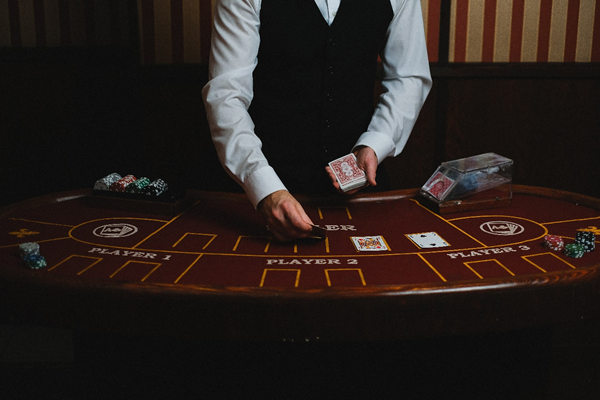Running a business is like playing poker. A game table is the best place to learn aspects essential to business life and train yourself.
You can observe how some of the most outstanding entrepreneurs deal with financial problems similar to playing cards. However, is the business-running poker-playing link just a loose simile, or is there something that aspiring businesspeople can learn from the famous gambling game?
Poker as active learning
Companies spend millions of dollars training their employees to improve their business acumen by setting up training sessions with reputed speakers and trainers.
But do you really think the coaching approach works a hundred per cent as intended? One can easily doubt it. One expert study found that most participants were considered to have earned new information and benefited in performance.
However, one area where participants thought these programs faltered was preparation for the future. And it is understandable since readiness for the future is much more fluid and dynamic concept.
Most can agree that just attending training sessions and listening to great people speak does not help if you don’t take action.
Learning takes place when you actively participate in the game of life, observe people, be present in the situation and make a move at the appropriate time. It sounds a lot like a game of cards, isn’t it?
What can it teach you?
Playing a physical game of poker requires players to observe and read other players and be quick and take crucial decisions.
Isn’t that what people in any kind of lucrative business have to do day in and day out?
There are many similarities between poker and running businesses. The competitive game involves familiarisation with various strategies, having a statistical approach, and planning quite like what one would do were it to run successful businesses.
But there are also differences between the two. Let us explore how running a business is like playing poker and how it isn’t.
Similarities
Playing cards can be a high-revenue enterprise, as one article from CasinoAlpha would indicate.
However, it also rings true that many businesses resemble the famous competitive gambling game. Playing cards and running a profitable enterprise is similar in many ways. Both will require constant and adaptive decision-making. However, similitudes go well beyond these platitudes.
· Winning is the goal
The goal of poker and entrepreneurship is to win. Some may claim to indulge in the gambling game for fun, but the monetary return remains an incentive.
Naturally, playing without real money falls somewhat short of approximating it to doing business. However, the underlying structure still allows some parallels to an extent.
Entrepreneurs and gamblers are similar, as they will try their best to have the greatest return in their activity, often at the expense of others. Both use their best strategies after observing the opponents, formulate a statistically appropriate speculative model, and make the best next move according to it.
· Ego will take you out of the game
All the talk about winning or losing may paint the wrong picture about these two activities. One thing is true: ego hurts returns in poker and business.
From an outsider’s perspective, these two heavily competitive activities seem to be battles between strong characters aiming to dominate one another. However, dealing with a poker game and a business often implies being tactful and often conceding for a better outcome.
Another truism: ego-centric individuals are easy to read. That is a death sentence for competitive gamblers and entrepreneurs. More on “reading” in competitive gambling and business making:
· You must read “opponents”
Figuring out the behavioural patterns of players in poker helps you plan your moves and takes you one step closer to winning.
Anticipating what the opponent will do allows you to plan your strategies well in advance. This often hinges on sustained attentivity and a nick for relevant detail.
Knowing the strengths and weaknesses of your opponent will take you a long way. Similarly, in business, you need to be aware of your opponent’s moves and stay one step ahead by strategically planning your moves.
Perhaps in the latter case, we refer to opponents rather loosely. However, no one could deny that entrepreneurship often implies direct competition.
Differences
One should not overestimate the similarities between competitive poker and successful business. There are considerable discrepancies that can compromise the viability of the comparison.
· There are no fixed rules in business
Unlike a poker game, running a business does not come with a previously agreed-on set of rules.
The market is an ever-changing beast. No successful entrepreneur can stick to an old approach that no longer suffices for the current environment.
Even more damming is that you are obliged to respect the rules in cards games. Cheating is grounds for exclusion from a game. With business, it’s quite the contrary. You often have to go against the grain. Today’s “going against the rules” may be tomorrow’s revolutionary approach to business making.
Here is a straightforward example. Cooperation in poker is outright cheating, being considered, rightly so, to be collusion. In business, it is many a time useful to cooperate with other actors, as long as you do not go against fair competition rules.
· Results take longer than a game round
While running a business may have many similarities with playing poker, there is a significant difference between the two.
In business, it takes a while to see the results. In a game of cards, the consequences of your actions come as soon as the cards are turned. You can immediately know whether or not a strategy is working, but it is a long process in business.
Poker is much more accepting of strategy changes for improving chances of winning, being even recommended that you have a volatile playstyle. In contrast, creating a business plan is more complicated than modelling strategies in poker.
Somewhat alike but more dissimilar
Now you know how running a business is like playing poker and how it isn’t. Although entrepreneurship and playing cards resemble some aspects, they differ in some essential elements.
Probably the most valid takeaway is that entrepreneurship is much more difficult than sitting down at a poker table.
Starting businesses can feel like a gamble, one that supposes considerable work, and whose results will come much later. Nonetheless, there are some simple guidelines for creating your own business and doing so successfully.
Competitive gambling games, too, can still provide some lessons related to decision-making in situations where you have incomplete knowledge. It can help you run a successful business, but there are limits to using poker as its analogue.










